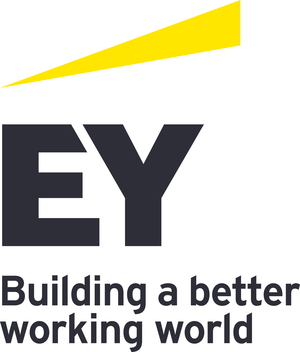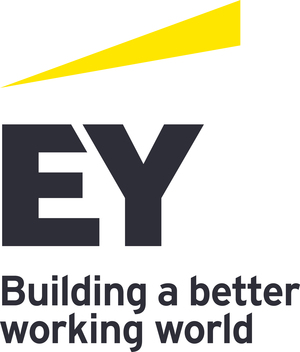
LONDON, May 5, 2021 /PRNewswire/ -- Despite an anticipated rebound in corporate divestment activity, global executives admit that realizing the benefits of the divestments they pursue has been challenging, according to the EY 2021 Global Corporate Divestment Study.
Nearly 8 out of 10 respondents (79%) say that they failed to meet price expectations in their most recent divestiture. At the same time, more than three-quarters (77%) of respondents say that shortcomings in portfolio or strategic reviews have resulted in failure to achieve intended divestment results. In addition, 56% of respondents say that their most recent divestment did not generate the valuation multiple impact for RemainCo that they had planned.
The annual survey of more than 1,000 global C-level executives shows more companies than ever (78%) in the study's nine year history hold onto businesses that, once critical to a portfolio, are now an unnecessary draw on resources and utilization of capital that could be better deployed elsewhere. Despite these challenges, as companies face tougher capital allocation decisions in a disrupted business environment, a majority of respondents (76%) expect the continued effects of the COVID-19 pandemic to accelerate divestment plans, with 56% planning to initiate their next divestment within two years, taking advantage of the opportunities provided by a robust M&A market.
Rich Mills, EY Global and Americas Sell and Separate Leader, says:
"Too often, divestment decisions are based on short-term financial factors, which often result in poor deal performance. In truth, divestments should be closely aligned with the overall corporate strategy and seen as an opportunity for even greater transformation. Issues such as investing the funds following a divestment in technology or additional capabilities to give the remaining business a competitive advantage, or the impact of a divestment on the future operating model of the business should be central to the decision-making process. Understanding a divestment's role in strategy is critical to capturing new growth and increasing stakeholder value and our survey shows respondents now better understand the importance for executives to create a stronger link between the two."
ESG, technology and returns to drive divestment activity
Environmental, social and governance (ESG) factors are playing an increasing role in driving divestment activity. Nearly half (46%) of sellers say ESG issues directly influence their divestment plans, with ESG being a much bigger factor in Asia-Pacific (84%) than in EMEA (47%) and the Americas (14%). These findings align with M&A data for Q1 2021 that shows ESG and renewables related deal values in the first quarter alone being three times higher than in the whole of 2020. Regulatory changes that require companies to reduce their carbon footprint might factor more heavily into divestment decisions in Europe, while companies in the Americas might ponder the impact on management and workforce diversity, when carving out or spinning off a business.
The EY survey also found that nearly all company respondents (94%) confirm that changes to the technology landscape are directly influencing divestment plans, up from 59% before the COVID-19 pandemic. Two-thirds (66%) say their most recent divestment was triggered by suboptimal returns in the divested business. Funds raised by divestment have flowed to technologies that support core capabilities (79%) and new markets, products, or geographies that better position RemainCo (65%).
Aligning divestments with strategic imperative key to long-term value creation
Increasingly, CEOs need to determine which businesses no longer help drive the company's strategy by taking a broad view on how it generates long-term value for stakeholders, yet 59% of CEOs acknowledge they should provide better guidance as to what businesses are core vs. non-core and nearly half (44%) of respondents say they have difficulty explaining the reasoning for divestments to the board and key stakeholders. At the same time, only 37% consider alignment to the company vision or mission a factor in identifying divestments.
Andrea Guerzoni, EY Global Vice Chair – Strategy and Transactions, says:
"Triggering events like the pandemic are firmly positioning long-term value creation at the core of corporate strategy. CEOs can rally employees, customers and investors behind divestments by demonstrating the link between the portfolio change and how it supports the company's strategy and broader considerations such as ESG, an increasing deal driver. Stakeholders may rally behind a divestment decision that demonstrably aligns with wider responsibilities and requirements while also freeing up capital to invest in such areas as technology that can help increase operational efficiencies, improve the customer experience and streamline decision-making."
Notes to Editors
About EY
EY exists to build a better working world, helping to create long-term value for clients, people and society and build trust in the capital markets.
Enabled by data and technology, diverse EY teams in over 150 countries provide trust through assurance and help clients grow, transform and operate.
Working across assurance, consulting, law, strategy, tax and transactions, EY teams ask better questions to find new answers for the complex issues facing our world today.
EY refers to the global organization, and may refer to one or more, of the member firms of Ernst & Young Global Limited, each of which is a separate legal entity. Ernst & Young Global Limited, a UK company limited by guarantee, does not provide services to clients. Information about how EY collects and uses personal data and a description of the rights individuals have under data protection legislation are available via ey.com/privacy. EY member firms do not practice law where prohibited by local laws. For more information about our organization, please visit ey.com.
This news release has been issued by EYGM Limited, a member of the global EY organization that also does not provide any services to clients.
About EY Strategy and Transactions
EY Strategy and Transactions teams work with clients to navigate complexity by helping them to reimagine their eco-systems, reshape their portfolios and reinvent themselves for a better future. With global connectivity and scale, EY Strategy and Transactions teams help clients drive corporate, capital, transaction and turnaround strategies through to execution, supporting fast-track value creation in all types of market environments. EY Strategy and Transactions teams help support the flow of capital across borders and help bring new products and innovation to market. In doing so, EY Strategy and Transactions teams help clients to build a better working world by fostering long-term value. For more information, please visit ey.com/StrategyandTransactions.
About the EY Global Corporate Divestment Study
The EY Global Corporate Divestment Study is an annual survey of C-level executives from large companies around the world, conducted by Thought Leadership Consulting, a Euromoney Institutional Investor company. Results are based on an online survey of 1,040 global corporate executives and 25 global activist investors (conducted between January and March 2021), including companies from 11 industries, with 90% of respondents holding the title of CEO, CFO or other C-level executive.
SOURCE EY






Share this article